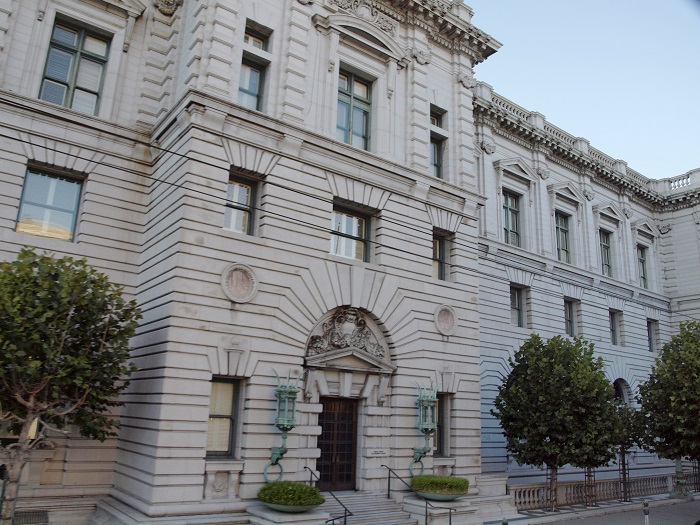 The U.S. Court of Appeals for the Ninth Circuit recently reversed a contrary trial court ruling and joined with the U.S. Court of Appeals for the Tenth Circuit in holding that a Chapter 13 trustee is not entitled to a percentage fee of plan payments as compensation for her work in a Chapter 13 case when the case is dismissed prior to confirmation.
The U.S. Court of Appeals for the Ninth Circuit recently reversed a contrary trial court ruling and joined with the U.S. Court of Appeals for the Tenth Circuit in holding that a Chapter 13 trustee is not entitled to a percentage fee of plan payments as compensation for her work in a Chapter 13 case when the case is dismissed prior to confirmation.
A copy of the opinion in Evans v. McCallister (In re Evans) is available at: Link to Opinion.
In this case, two debtors filed a Chapter 13 bankruptcy plan. The plan provided that the fees of the standing trustee would be “governed and paid as provided by 28 U.S.C. § 586.” Consistent with 11 U.S.C. § 1326(a)(1), the debtors began making payments to the trustee according to the proposed plan, and the trustee collected a percentage fee from each payment as compensation. Before the plan was confirmed, however, the debtors voluntarily dismissed their case.
After the debtors dismissed their case, they filed a “motion to disgorge fees,” arguing that the trustee was obligated to return to them any fees she had collected because 11 U.S.C. § 1326(a) requires fees to be refunded if a plan is not confirmed. The bankruptcy court agreed with the debtors and ordered the trustee to return the fees. The trial court reversed, and the debtors timely appealed.
The parties both argued that a proper interpretation of the word “collect” in 28 U.S.C. § 586(e)(2) controlled the appeal. The relevant language reads: “[the trustee] shall collect such percentage fee from all payments received by such individual under plans . . . for which such individual serves as standing trustee.” 28 U.S.C. § 586(e)(2).
The Ninth Circuit determined that the best approach to interpret “collect” was proposed by amicus National Consumer Bankruptcy Rights Center and National Association of Consumer Bankruptcy Attorneys (NCBRC), which was to read 28 U.S.C. § 586 and 11 U.S.C. § 1326 together. See In re W. States Wholesale Nat. Gas Antitrust Litig., 715 F.3d 716, 731 (9th Cir. 2013). Specifically, NCBRC contended that the phrase “payments . . . under plans” in Section 586, when read in the larger context of the Bankruptcy Code, refers only to payments under confirmed plans, rendering the provision irrelevant to the pre-confirmation period. NCBRC suggested that to the extent this case implicated pre-confirmation payments, the place to look was instead Sections 1326(a) and (b).
The Ninth Circuit noted that, unlike Section 586, which refers to “payments . . . under plans,” Section 1326(a)(1)(A) refers to payments “proposed by the plan.” Accordingly, prior to confirmation, the Court held that a trustee does not “collect” or “collect and hold” fees under Section 586, but instead “retains” payments “proposed by the plan” pursuant to Section 1326(a)(2). See § 1326(a)(2). If a plan is not confirmed, Section 1326(a) requires return of “any such payments” to the debtor, after deducting amounts previously paid and due and owing to creditors. Id. If a plan is confirmed, the trustee is to distribute payments in accordance with the plan. Id. §1326(a)(2).
Furthermore, the Ninth Circuit determined that plan confirmation triggers one last and important provision, Section 1326(b). If a plan is confirmed — and only if a plan is confirmed — does 1326(b) require that the trustee “be paid” her percentage fee “[b]efore or at the time of each payment to creditors under the plan.” Because payments are made “to creditors under the plan” only once a plan is confirmed, id. § 1326(a)(2), the Court reasoned that Section 1326(b) indicates that a standing trustee can be paid her percentage fee only after confirmation. The Court also noted that Section 1326(b) cross-references Section 586, which provides the source of and the amount (but not the timing) of trustee fees.
Thus, the Ninth Circuit concluded that the plain text of Section 1326(b) unambiguously shows that it is the specific provision governing when a trustee “shall be paid”: “before or at the time of each payment to creditors under the plan,” which necessarily means post-confirmation of a plan. Section 1326(a) only governs disposition of “payments . . . proposed by the plan,” and Section 586 only provides that when a trustee does collect her fee pursuant to 1326(b), she does so by “collect[ing]” her fee “from all payments received” under confirmed plans. See 28 US.C. § 586(e)(2)).
The Ninth Circuit also decided that the amendment history of these provisions supports the debtors and NCBRC’s interpretation. The Court reasoned that Congress has had numerous opportunities to add language explicitly permitting a trustee to receive her fees even if a plan is not confirmed. In the Court’s view, Congress’s failure to do so strongly evidences its intent not to require payment of trustee fees when a plan is not confirmed. See Guerrero-Lasprilla v. Barr, 140 S. Ct. 1062, 1071–72 (2020).
Accordingly, the Ninth Circuit reversed the trial court’s decision and held that the trustee was not entitled to a percentage fee of plan payments as compensation for her work in the Chapter 13 case.


